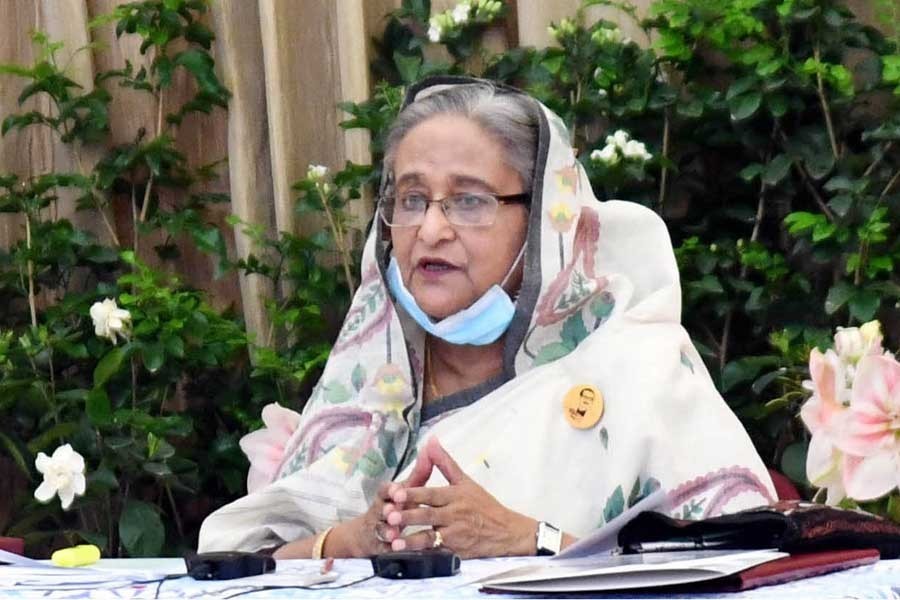
Published :
Updated :

Prime Minister Sheikh Hasina early this week inaugurated the 'Bangladesh Infrastructure Development Fund (BIDF)' that enables the government to use a part of the country's foreign exchange reserve for bankrolling development projects.
The Bangladesh Bank will put in an initial amount of US$2.0 billion in the BIDF. There must have been a sovereign guarantee to facilitate the transfer of forex to the BIDF by the central bank.
The central bank has lent the money to the state-owned Sonali Bank, which will operate the fund, at an interest rate of 1.0 per cent. Under a tripartite agreement signed on the occasion of launching the BIDF, the Payra Port Authority will receive a handsome amount---Euro 546 million--- for execution of a major dredging project.
The move by the government appears to be a bold and calculated one. Yet there are some risk elements. Some experts and a couple of former central bank governors have cautioned the government about that.
There is no denying that the country's forex reserve has been growing and now it maintains at a satisfactory level of US$44 billion. Higher remittance inflow in recent months has helped. Lower import of raw materials and capital goods during the last financial year (FY) because of the Covid-19 pandemic had also a role.
The government wants to keep aside reserves needed to meet the import demands for six months and use a part of the rest for development project execution. That is not at all a bad idea. Imports for six months are likely to cost around $30 billion if the import figures for the July-December period for the current FY are taken into account. However, the spending could vary, depending on the situation and demand for various goods and services.
Experts have not opposed the use of reserves on development projects. What they have pointed out are the risks involved in lending funds to private-sector borrowers.
With public sector borrowers, it would be a responsibility of the government to pay back the money to the Sonali Bank if there were defaults on loan repayments. If such a borrower failed to repay, what would happen? As a sovereign guarantor, the government will have to repay the defaulted amount to the Sonali Bank. Should the government spend the taxpayers' money this way?
Rather, any private sector agency having an exemplary track record should be encouraged to borrow from foreign sources at a rate even lower than what the BIDF will be charging.
Foreign development partners, both bilateral and multilateral, do not show interest in many projects that are locally considered important. So, mobilisation of enough resources is necessary. Yet the selection of projects and their execution on time and within the allocated resources have been eluding the most public sector agencies. If the same problems plague the projects to be taken under the newly launched BIDF, the purpose behind using the surplus forex reserve will largely be defeated.
zahidmar10@gmail.com


 For all latest news, follow The Financial Express Google News channel.
For all latest news, follow The Financial Express Google News channel.